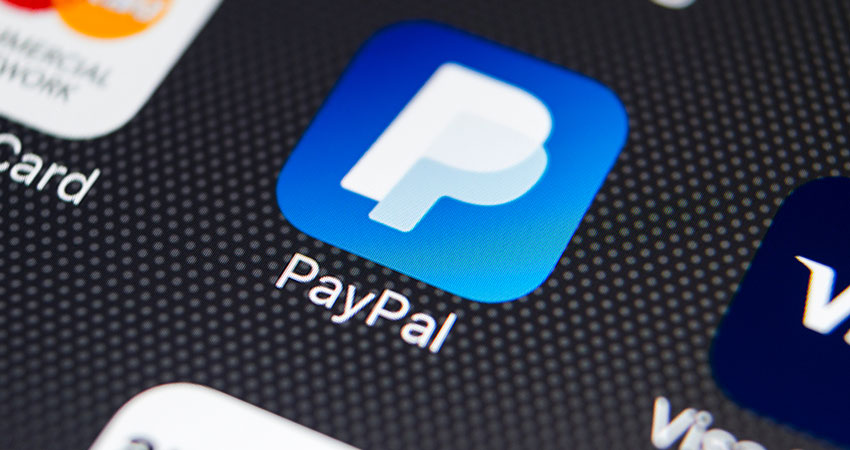PayPal has a reputation for safety and security, which makes them the first choice for many ecommerce businesses who need to have a way to accept online payments.
Unfortunately, fraud and criminal activities do still occur on PayPal. Any merchant who regularly transacts business over PayPal should be aware of these five common scams.
Shipping Address
After a purchase is made and the payment has been placed in the seller’s PayPal account, the scammer asks the seller to ship their purchased item to an invalid delivery address.
After several failed delivery attempts, the shipping company flags the item as undeliverable in their system. The scammer then contacts the shipping company and gives them a new, valid shipping address.
When the scammer gets their shipment, they file a complaint with PayPal claiming that the item was never delivered. The seller has no proof of delivery, because their transaction detail shows only the original, invalid address. PayPal’s Seller Protection doesn’t cover shipments made to addresses that aren’t on file, so the seller loses both the item they shipped and the payment funds.
Overpayment
Sometimes, a scammer may make a payment to a seller’s PayPal account that exceeds the cost of the item they are purchasing.
Then they will contact the seller, explain that they overpaid, and ask for the remaining balance to be paid back to them.
After the seller sends back the overpayment amount, the scammer sends a complaint to PayPal claiming that their account was compromised and that they never meant to send a payment to the seller in the first place. PayPal reimburses the full original payment back to the scammer, and even if the seller hasn’t shipped out the purchased item yet, they’ve still lost the “overpaid” amount they sent back.
Fake Email
Scammers may send forged emails to sellers that appear to be from PayPal, stating that the scammer paid money into the seller’s account and that PayPal has placed a hold on the funds and will not release them until the seller sends a shipment tracking number.
PayPal does not work this way; they do not hold funds in escrow. The scammer is hoping that the seller will rush to ship the item and send over a tracking number in order to receive the money. Once the item has been shipped, it’s too late—the scammer will get an item that they never paid for, and the seller will eventually realize that PayPal was never holding money for them.
Phishing Email
Another fake email scam involves sending sellers an email that appears to be from PayPal indicating that funds have been transferred into their account pending confirmation, with a link or button for the seller to click that will make the money available to them.
The link leads to a fake PayPal site that will ask for the seller’s login credentials. If the seller enters their email and password into the fake site, the scammer will be able to use them to log into the seller’s actual PayPal account, from which they can make payments or withdraw funds.
Hacked PayPal
Once a scammer has hacked into somebody else’s PayPal account (as in the case of the phishing email scam), they can make purchases and send payments with the money from the account they have taken over.
A seller might receive notice of a purchase and ship an item, only to later be told by PayPal that the transaction was fraudulent and that the transaction must be reversed. PayPal may reimburse the seller if they are able to confirm that the account that made the payment was hacked.
How You Can Prevent PayPal Scams
The good news about PayPal scams is that there are several actionable steps merchants can take to prevent or avoid them.
- Before accepting a payment, look out for red flags. Requests to rush shipments, accept partial payments, or accept payments split up between multiple PayPal accounts are all strong indicators of fraudulent activity.
- Items that have a high resale value or are in high demand are especially attractive to fraudsters. Before shipping out especially valuable items, double check shipping and billing addresses to make sure they match.
- Even customers with valid credentials may commit “friendly fraud” out of ignorance or impatience. When shipping high-value items, insist on signature confirmation on delivery.
- Sign up for PayPal’s Seller Protection Program, and PayPal will monitor your transactions for signs of fraud.
- Block customers who file disputes or make fraud claims. Fraudsters will often target the same seller several times if no action is taken against them.
Many instances of fraud happen because sellers don’t know the warning signs to watch out for. If you know what to look for, you can exercise caution and protect yourself from scammers, thieves and hackers.
Businesses that process ecommerce and other card-not-present transactions — including the more than 17 million who use PayPal for payments — are quickly learning about the risks and realities of chargebacks.
Editor’s note: this post was originally published in 2018 and will be updated as needed.
Suresh Dakshina is President Chargeback Gurus

